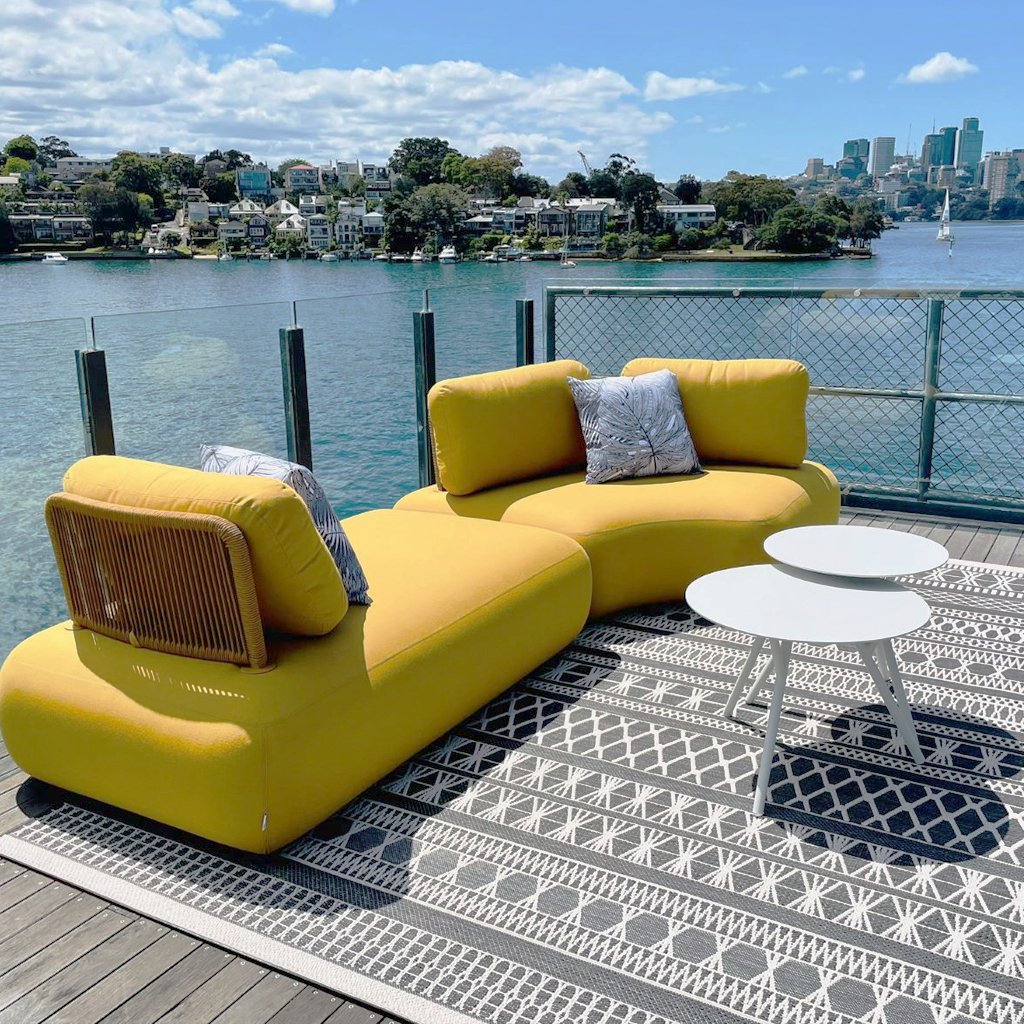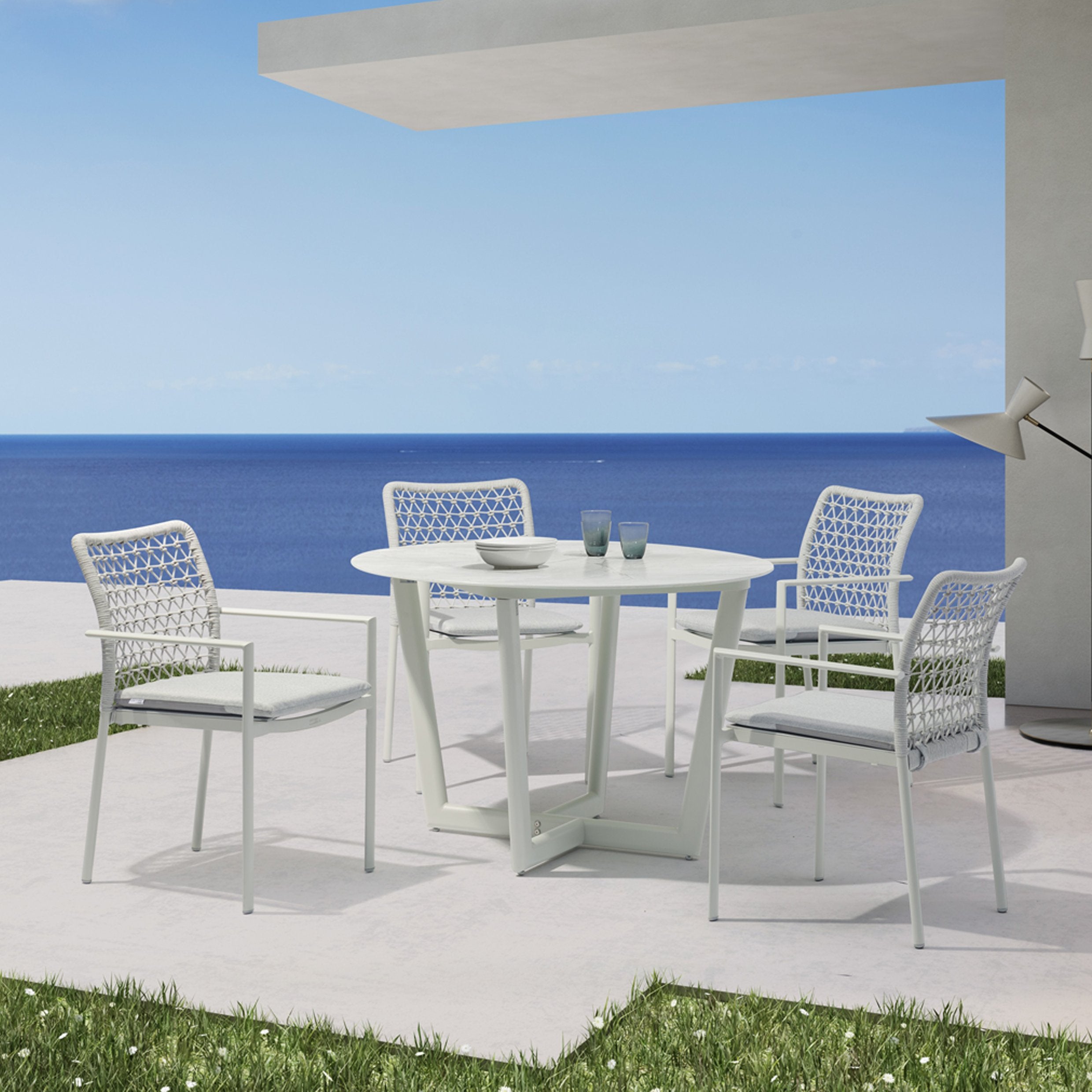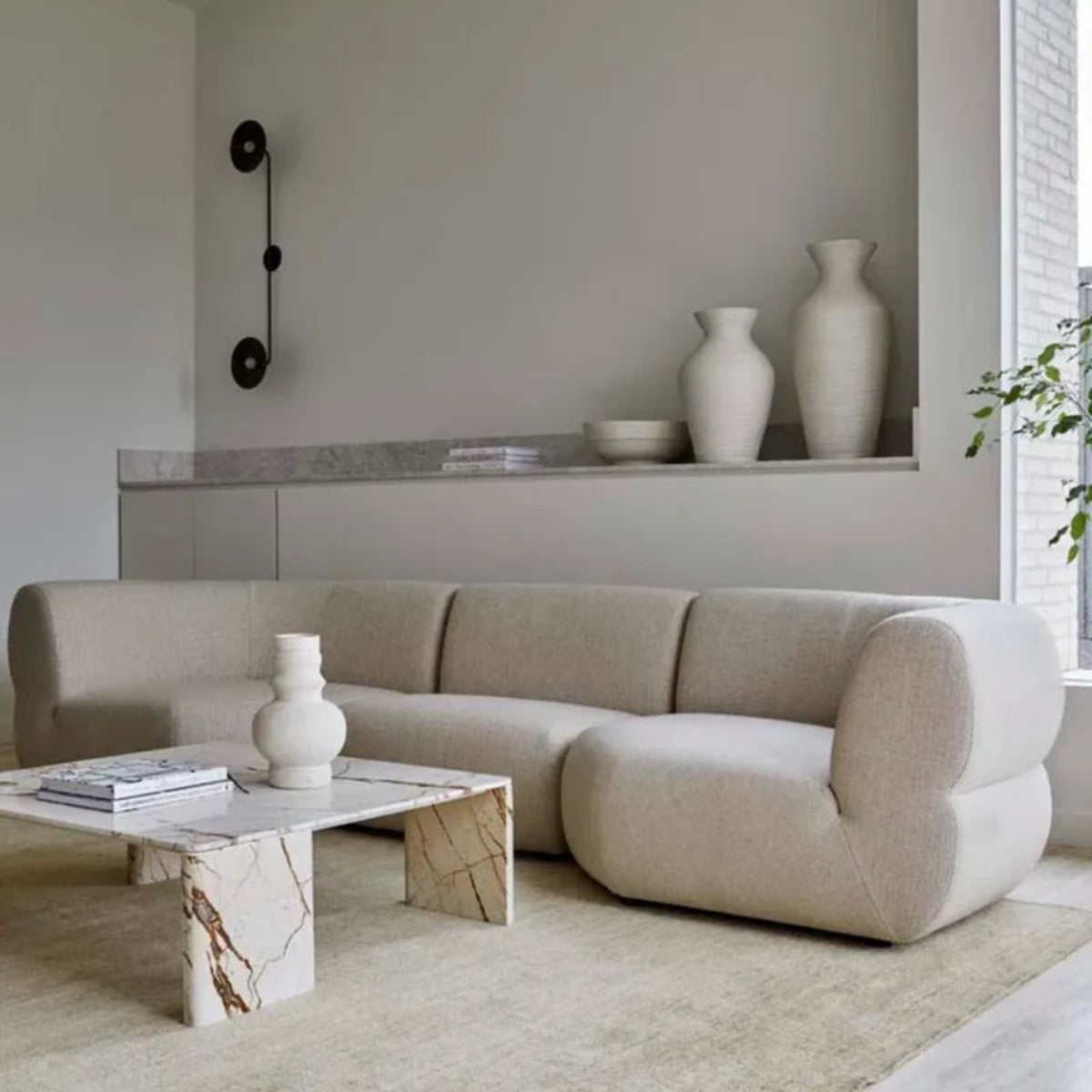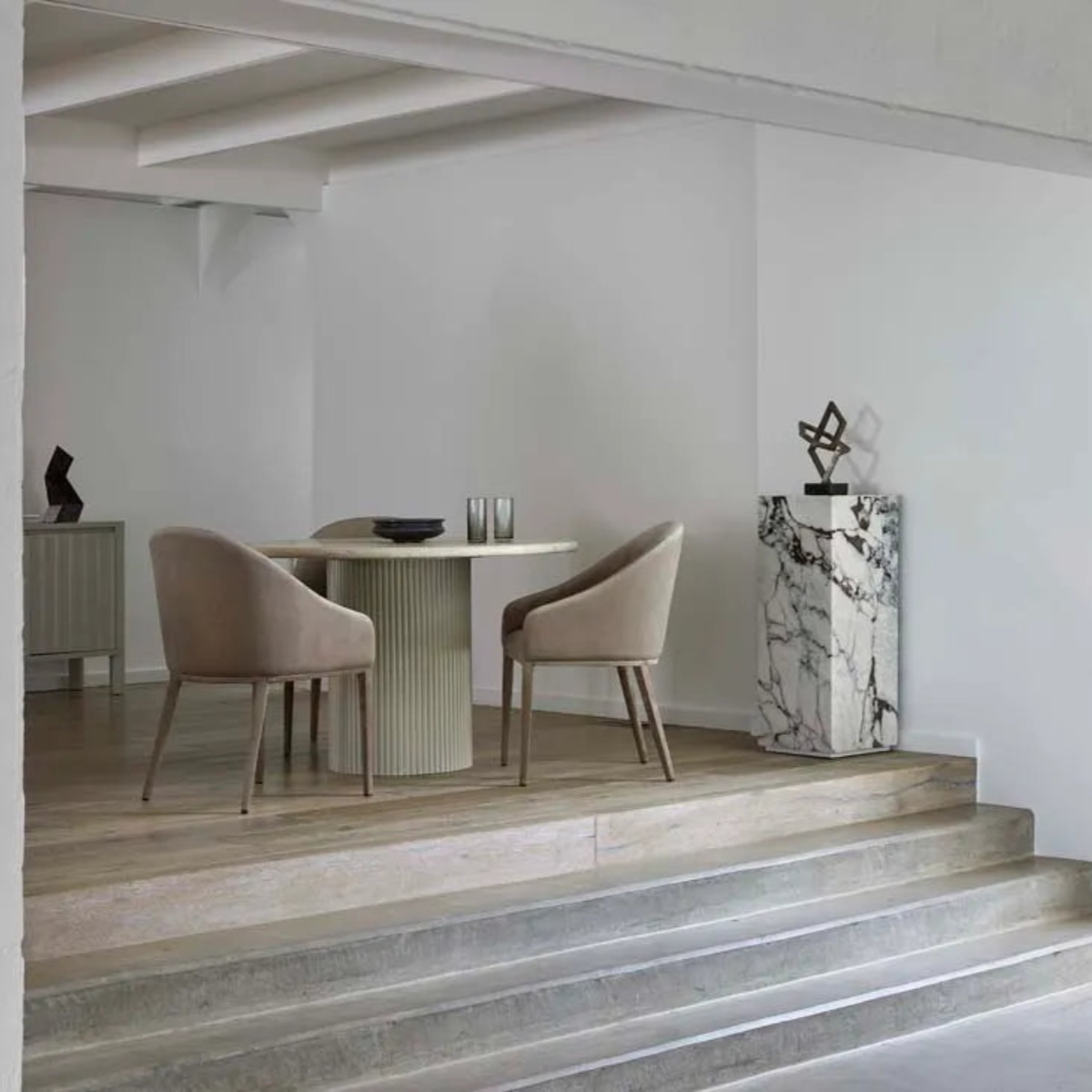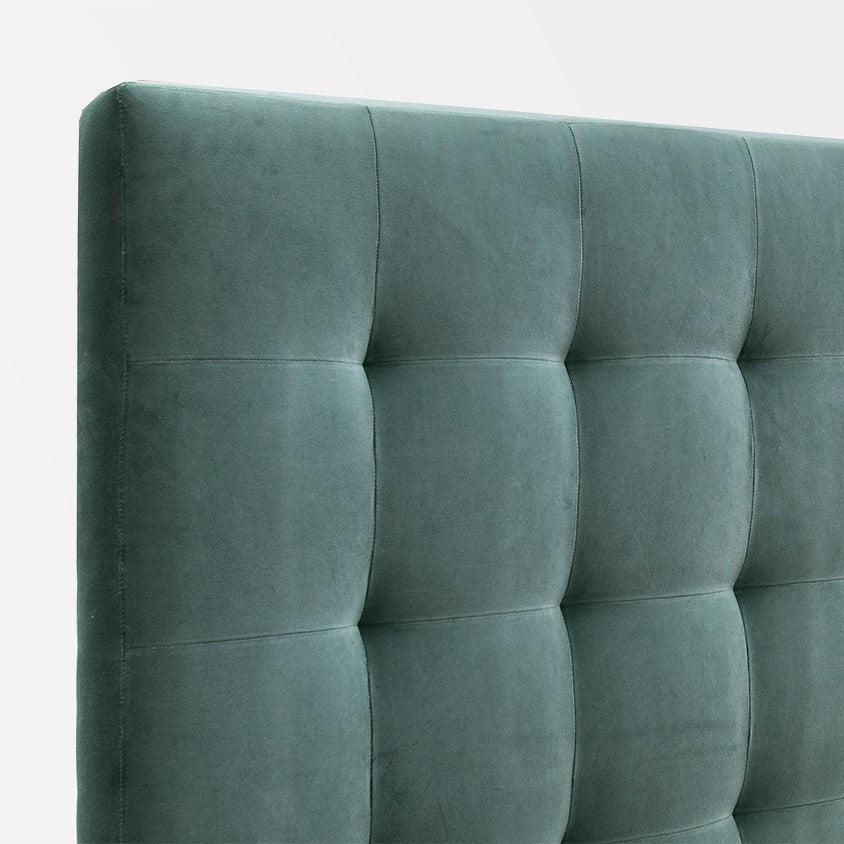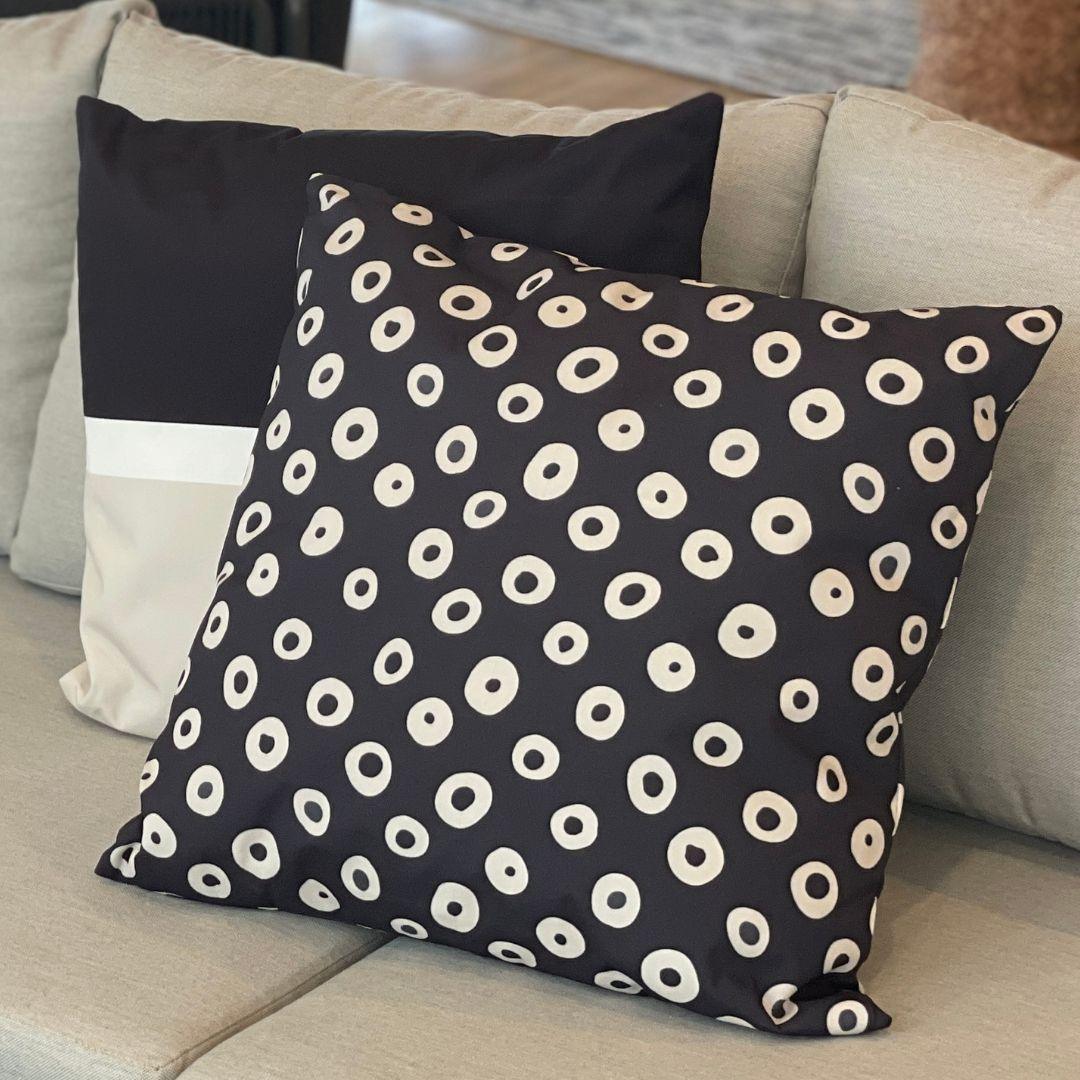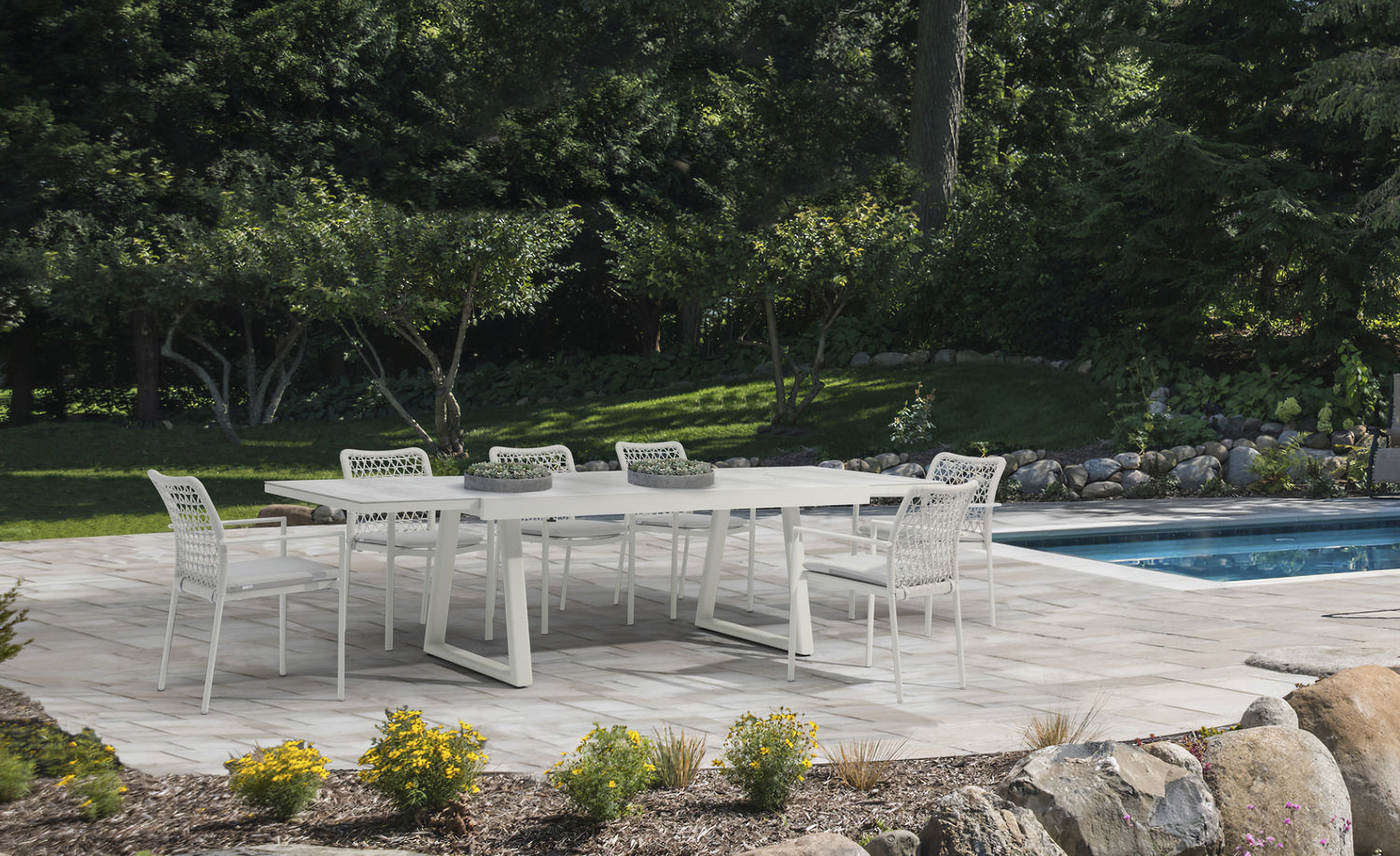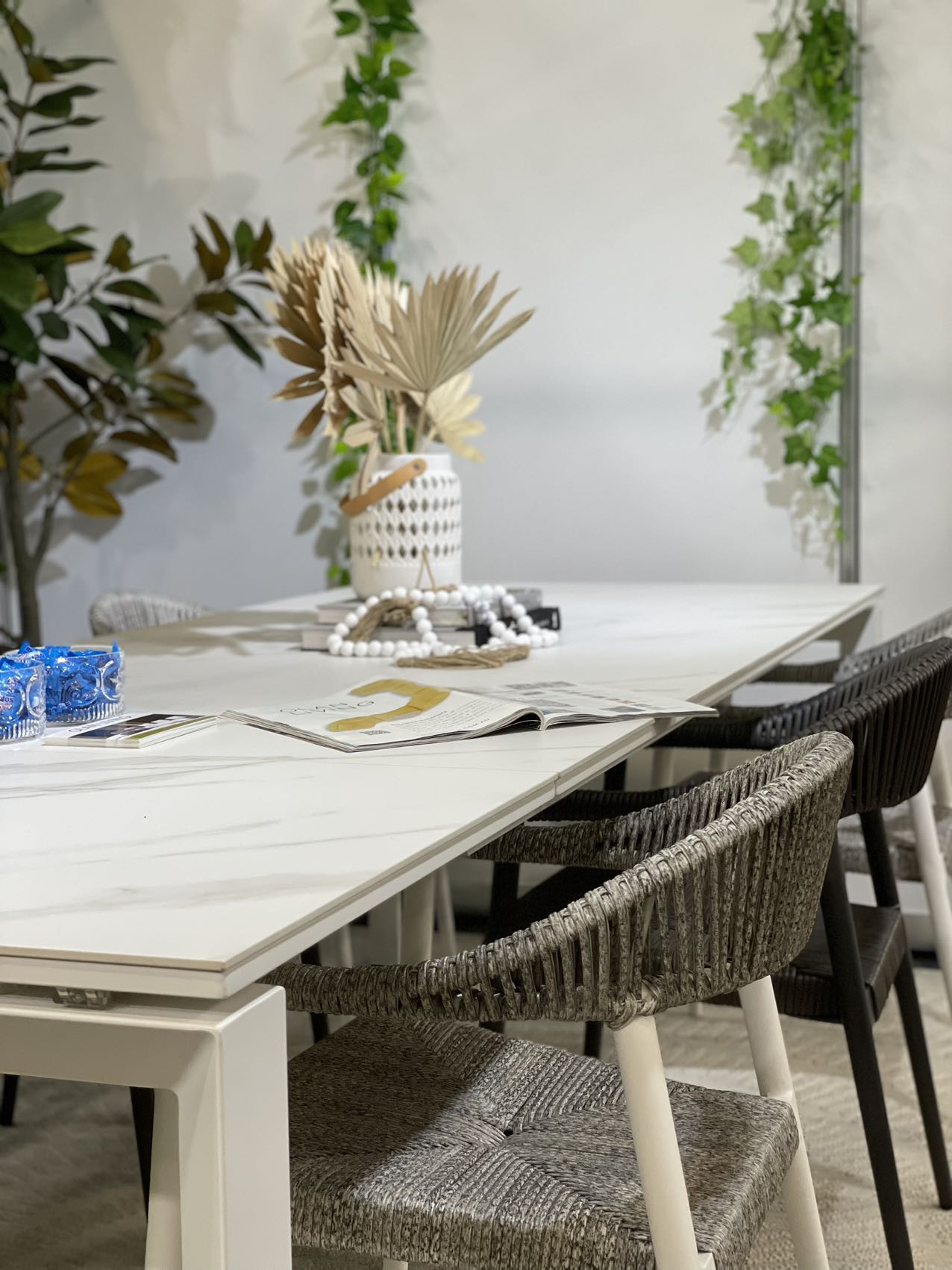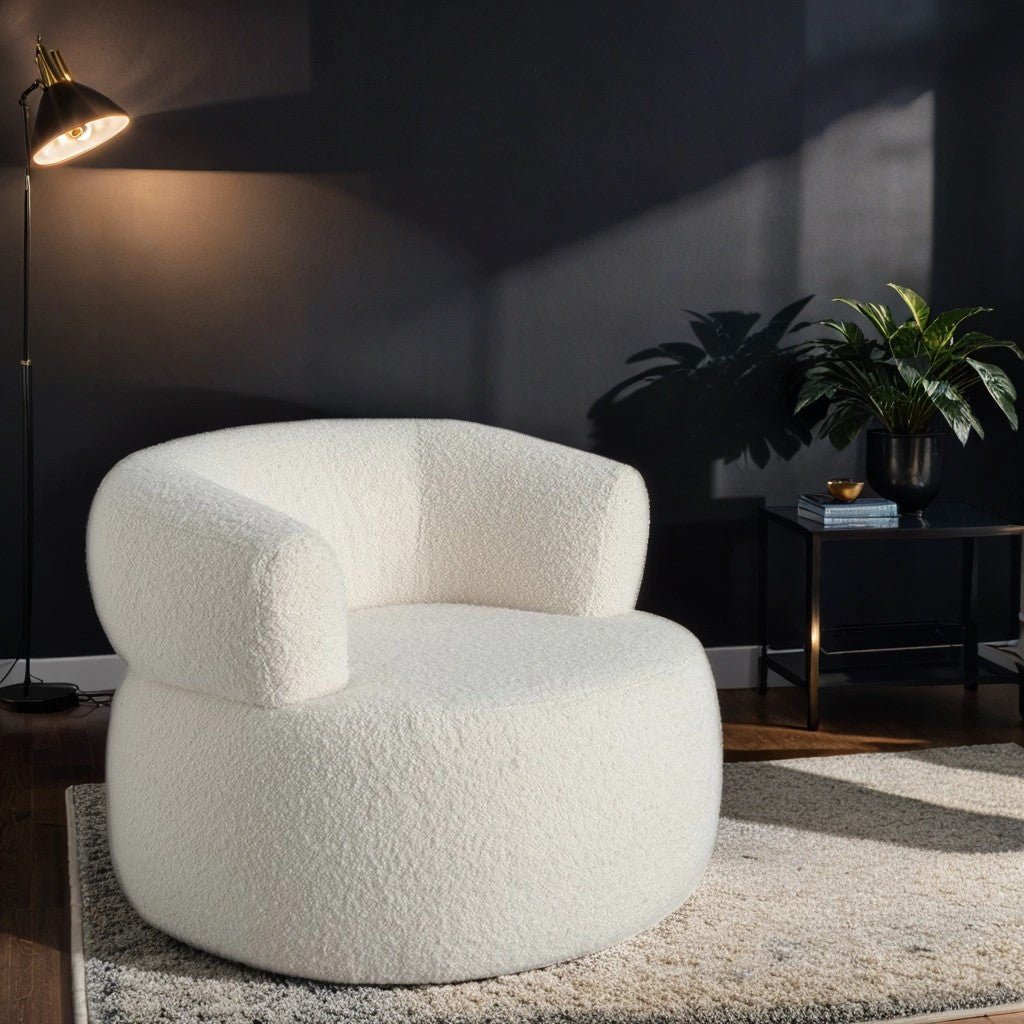When it comes to enhancing your outdoor dining experience, selecting the right material for your extendable dining table is crucial. With a variety of options available, each offering its own unique benefits and considerations, making the right choice can seem overwhelming. In this guide, we'll explore the most popular materials for outdoor extendable dining tables, helping you narrow down your options and make an informed decision that suits your needs and preferences.
-
Wood:
- Wood is a classic choice for outdoor furniture, offering natural beauty and warmth to any outdoor space.
- Popular wood options include teak, cedar, and eucalyptus, each known for its durability and resistance to weather elements.
- Teak, in particular, is highly prized for its natural oils that make it resistant to rot, decay, and insects, making it ideal for outdoor use. Rome Teak Outdoor Dining Table gives you this classic touch.
- While wood requires periodic maintenance, such as sealing or staining, it can last for many years with proper care.

-
Metal:
- Metal outdoor dining tables, such as aluminum, wrought iron, and stainless steel, offer durability and strength.
- Aluminum is lightweight, rust-resistant, and easy to maintain, making it a popular choice for outdoor furniture. Meet Verona Outdoor Extendable Dining Table and feel the difference.
- Wrought iron provides a classic, elegant look and is incredibly sturdy, but it may require occasional repainting to prevent rust.
- Stainless steel is highly durable and resistant to rust and corrosion, making it suitable for coastal areas or humid climates.

-
Wicker/Rattan:
- Wicker and rattan furniture add a touch of tropical charm to outdoor spaces and are lightweight and easy to move around.
- Synthetic wicker made from resin is weather-resistant and requires minimal maintenance, making it suitable for outdoor use.
- Natural rattan is also an option but may require more maintenance to protect it from the elements.
-
Plastic/Resin:
- Plastic or resin outdoor dining tables are lightweight, affordable, and easy to clean.
- They are resistant to moisture, fading, and rust, making them ideal for use in all weather conditions.
- However, plastic tables may lack the aesthetic appeal of natural materials like wood or metal.
-
Composite Materials:
- Composite materials, such as recycled plastic lumber or engineered wood, offer the look of natural wood with added durability and low maintenance.
- They are resistant to rot, decay, and insects, making them an excellent choice for outdoor furniture.
When selecting the material for your outdoor extendable dining table, consider factors such as durability, maintenance requirements, climate, and budget. Choose a material that complements your outdoor space and lifestyle, ensuring years of enjoyment and comfort for you and your guests.


